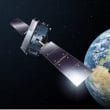A path toward trust
By Emily B. Landau, December 18, 2013
Opportunity sometimes emerges out of tragedy. Following the August chemical attack near Damascus that killed nearly 1,500 people, an opportunity has arisen for Middle Eastern nations to engage in productive dialogue about establishing a chemical-weapon-free zone in the region.
Without the horror of the August attack, and without the Obama administration’s response to it, the Assad regime would never have considered relinquishing its vast, varied arsenal of chemical weapons. Even though the US Congress appeared skeptical of military action in Syria, Obama’s threat to use targeted force put the survival of the Assad regime in question, and this inspired action by Russia, Iran, and Syria itself. In these countries’ collective view, it was better for Syria to renounce chemical weapons than for Assad to fall.
In the Middle East, opportunities born of crisis are nothing new. After the Gulf War ended in 1991, the United States pushed for the creation of a multilateral mechanism for regional dialogue to complement bilateral talks between Israel and its Syrian, Jordanian, and Palestinian neighbors, which were at the heart of the Madrid peace process. Part of this mechanism was a working group devoted to arms control and regional security.
The working group, which forced Israel and participating Arab states to think seriously about establishing a common vision for Middle East security and arms control, had the potential to produce a novel security architecture for the region. Truly revolutionary ideas about regional security, especially in the realm of confidence-building measures, were developing. But before these ideas could be implemented, the talks were put on hold. A major development that undermined the working group was Egypt’s determined effort (made even though a regional arms control process was on track and making significant headway) to place a Middle East WMD-free zone on the agenda of the 1995 Review and Extension Conference for the Nuclear Non-Proliferation Treaty.
The underlying rationale for establishing a zone in the Middle East free of weapons of mass destruction is to enhance security and stability in the region and reduce the risk of destructive war. These goals are worthy, but discussions about weapons and arms control cannot be detached from events within and relationships among states. States are not identical entities—not in their aspirations and interests and not in their behavior—and these differences cannot be ignored when pursuing interstate arms control agreements. Weapons of mass destruction must be considered in context.
Israel has two major concerns about any effort to rid the region of WMD. First, Israel’s policy of nuclear ambiguity and low-profile deterrence is an insurance policy against any enemy that would threaten the state existentially. Such threats are not theoretical—entities that reject Israel’s legitimacy as a sovereign state issue existential threats regularly. Yet in the context of establishing a zone free of weapons of mass destruction, Israel’s neighbors seem bent on addressing the nuclear issue above all. Second, the Middle East suffers from a trust deficit regarding states’ willingness to comply with nonproliferation and disarmament treaties. Four countries in the region—Iraq, Iran, Libya, and Syria—have made commitments about weapons of mass destruction only to conduct clandestine activities aimed at developing the very capabilities they had rejected.
Discussions toward establishing a chemical-weapon-free zone could help address Israel’s concerns. For Israel, entering into an agreement on chemical weapons would represent a major concession—but pursuing such an agreement might also clarify whether other states are interested only in stripping Israel of its insurance policy against annihilation. Dialogue would also allow Israel to consider a chemical-weapons proposal that drew no direct link between Syria and Israel in the chemical realm, as the notion of Israel’s joining the Chemical Weapons Convention would do.
Further, talks could build confidence among Middle Eastern states regarding an entire category of nonconventional weapons. They could begin to address the region’s debilitating deficit of trust. And because discussions would be conducted on a regional basis instead of in the context of global treaties, they would provide nations the experience of working together, especially when it comes to verification of commitments. Indeed, nations could cooperate to create a regional organization for implementation of a chemical-weapon-free zone agreement, drawing on the example of the Organisation for the Prohibition of Chemical Weapons. Discussions would also provide a useful test case for states’ ability to deal constructively with hard-core security issues by means of regional dialogue and cooperation.
Discussions about a chemical-weapon-free zone should begin only after destruction of Syria’s chemical weapons capacity has become irreversible. But ideally, chemical weapons could become part of a broader regional dialogue. (That would depend on the United States and perhaps Russia using the Syrian crisis as a platform for putting broader regional arms control efforts back on track.) Ultimately, the notion of a chemical-weapon-free zone should be integrated into a sorely needed Middle East Regional Security Dialogue Forum, something for which my colleague Shimon Stein and I have argued elsewhere. Such a forum, with inclusive membership and a comprehensive agenda, would allow states to discuss a full range of regional security topics, from the soft to the very hard. If discussions toward banning chemical weapons from the region were to help create such a forum, the discussions would represent a major step toward making the Middle East safer and more secure.
Topics: Technology and Security
Share: [addthis tool="addthis_inline_share_toolbox"]














